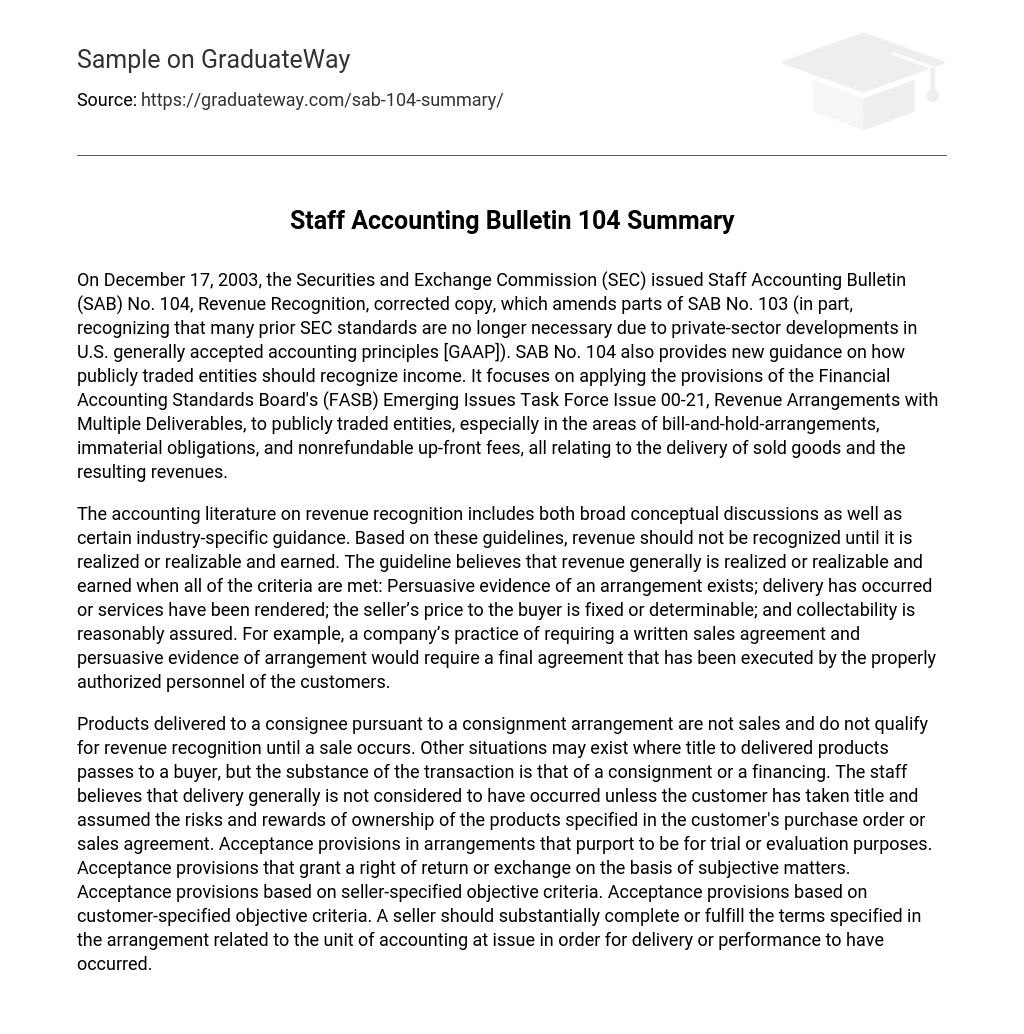The Securities and Exchange Commission (SEC) issued Staff Accounting Bulletin (SAB) No. 104, Revenue Recognition, corrected copy, on December 17, 2003. This bulletin amends parts of SAB No. 103, acknowledging that certain SEC standards are no longer necessary due to private-sector developments in U.S. generally accepted accounting principles (GAAP). SAB No. 104 also provides new guidance on how publicly traded entities should recognize income. It specifically addresses the application of the Financial Accounting Standards Board’s (FASB) Emerging Issues Task Force Issue 00-21, Revenue Arrangements with Multiple Deliverables, by publicly traded entities. This guidance is particularly relevant to bill-and-hold arrangements, immaterial obligations, and nonrefundable up-front fees related to the delivery of goods and the resulting revenues.
The accounting literature on revenue recognition includes both broad conceptual discussions as well as certain industry-specific guidance. According to these guidelines, revenue should only be recognized when it is realized or realizable and earned. This means that revenue is generally considered realized or realizable and earned when specific criteria are met. These criteria include the existence of persuasive evidence of an arrangement, completion of delivery or services rendered, a fixed or determinable price between the seller and buyer, and reasonable collectability assurance. For instance, a company that requires a written sales agreement and persuasive evidence of arrangement would need a final agreement approved by the authorized personnel of the customers.
Products delivered to a consignee under a consignment arrangement do not qualify for revenue recognition until a sale takes place. There may be cases where title to the delivered products is transferred to a buyer, yet the essence of the transaction is that of a consignment or financing. According to the staff, it is generally not considered delivery unless the customer has taken title and assumed the risks and rewards of owning the specified products. Acceptance provisions related to trial or evaluation purposes, provisions allowing return or exchange based on subjective matters, provisions based on seller-specified objective criteria, and provisions based on customer-specified objective criteria are all included. For delivery or performance to occur, a seller must substantially complete or fulfill the terms specified in the arrangement regarding the unit of accounting in question.





